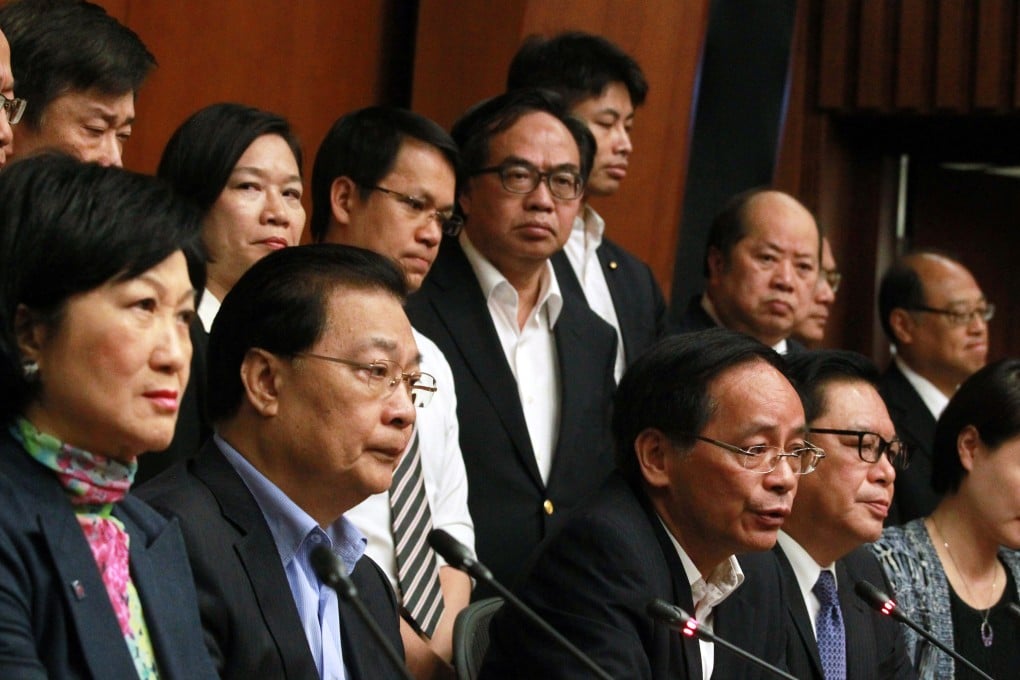June 18, 2015: Hong Kong government’s reform plan fails, as does Legco walkout
- Pro-Beijing lawmakers left chamber to wait for colleague - leaving just eight of them to vote yes

By Tony Cheung, Jeffie Lam and Joyce Ng
Hong Kong’s legislature yesterday blocked the government’s electoral reform plan as a historic showdown between pan-democrats and Beijing loyalists became a farce when the latter camp’s bungled walkout meant that only eight lawmakers voted for the plan.
There was utter confusion among the government’s allies when 31 of them left the chamber in the mistaken belief the ballot would be adjourned while they waited for rural kingpin Lau Wong-fat, who was stuck in traffic on his way to cast his vote.
The resulting fiasco ended two years of debate and months of bickering on how Hong Kong could elect its chief executive by “one man, one vote” in 2017.
All 27 pan-democratic lawmakers kept their vow to vote no, and pro-establishment medical sector representative Dr Leung Ka-lau added a 28th vote. That would have been enough to deny the proposal the two-thirds majority it needed. But the pro-establishment camp’s plan to blame pan-democrats for the failure of reform was severely undermined, as the walkout left just eight yes votes and a clear majority against the package.
The eight who voted yes were the five Liberal Party lawmakers, the Federation of Trade Unions’ Chan Yuen-han, and independents Lam Tai-fai and Chan Kin-por. Legco President Jasper Tsang Yok-sing and labour representative Poon Siu-ping were present but did not vote.